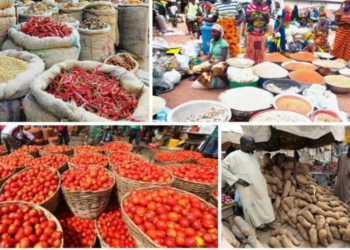Key highlights
- Kerosene costs per litre have increased by over 100% in the past year, especially in the southeast and northeast zones.
- Data from the National Bureau of Statistics (NBS) shows an increase in kerosene prices across the board – litre and gallon.
- Local food caterers in the country are having a hard time coping with increasing kerosene prices and they are turning to even dirtier fuels to make a living.
Latest data by the National Bureau of Statistics (NBS) has shown a 160.48% rise in the cost of kerosene.
According to the National Household Kerosene price watch report, Nigerians bought kerosene at an average cost of N1,173.89 per litre in February 2023. This shows a 160.48% rise from N450.66 per litre which Nigerians paid for the same amount in February 2022.
Kerosene costs across states/zones
The report stated that during the period under review, kerosene cost an average of N1,550 per litre in Plateau state. In Abuja, the federal capital territory, kerosene cost N1,473.33 per litre, and in Adamawa, it costs N1,438.10 per litre. Meanwhile, during the same period, kerosene cost N923.81 per litre in Nasarawa state, N945.93 per litre in Katsina state, and N956.94 per litre in Sokoto state.
Across the six geopolitical zones, kerosene costs per litre varied during the period under review. The Northwest was the cheapest with N976.24 per litre.
The South-South recorded N1,170.35 per litre, in the Southwest, kerosene cost an average of N1,259.96 per litre. The Northcentral recorded an average of N1,185.52 per litre, the Northeast recorded an average of N1,240.70 per litre, and the Southeast recorded an average of N1,255.12 per litre.
Kerosene prices per gallon
According to the NBS data, there was a 151.72% rise in the cost of kerosene price per gallon between February 2022 and February 2023. Nigerians bought kerosene per gallon at N3,926.23 in February 2023, compared to N1,559.78 in February 2022.
The report identified Kwara, Ebonyi and Anambra as the states with the highest prices per gallon of kerosene during the period under review, while Borno/Gombe, Bayelsa and Delta had the lowest prices per gallon during the period highlighted.
In Kwara, Nigerians paid an average of N4,905.83 per gallon of kerosene, in Ebonyi, they paid N4,606.25 per gallon, in Anambra, they paid N4,550 per gallon. Meanwhile, in Borno/Gombe, they paid N3,050 per gallon, in Bayelsa, they paid N3,071.43 per gallon and in Delta, they paid N3,116.67 per gallon.
Across the geopolitical zones in the country, prices per gallon recorded slight differences. In the Northcentral, kerosene per gallon cost N4,107.59, the Northwest recorded N4,011.64 per gallon, the Northeast recorded N3,567.36 per gallon, the Southeast recorded N4,517.66 per gallon, the Southwest recorded N3,962.80 per gallon and the South-South recorded N3,474.74 per gallon.
A user’s context
Layi Rekiya, a local caterer who specializes in making food for local events in Abuja, Plateau, Nasarawa, and other states around the country, told Nairametrics that her food business has recently started to struggle due to several factors, one of them being kerosene prices. She stated further that her cooking fuel has been firewood and kerosene for some years.
However, she and other local caterers have started turning to charcoal, which is cheaper than kerosene. When asked if she is not bothered about the impact her fuel choices (firewood, charcoal, kerosene), have on the environment, she lamented that she had no choice because cooking gas (liquefied petroleum gas) is too expensive, and her capital as a local caterer cannot cover the cost.
Kerosene, like other petroleum products, could record more increases in prices. This is because Nigeria still lacks local crude oil refining capacity. So, factors like global supply chain issues as well as local distribution challenges, could further drive-up costs for end consumers.
What you should know
The average retail price per litre of kerosene paid by consumers in February 2023 was N1,173.89, indicating an increase of 1.78% compared to N1,153.40 recorded in January 2023.






















